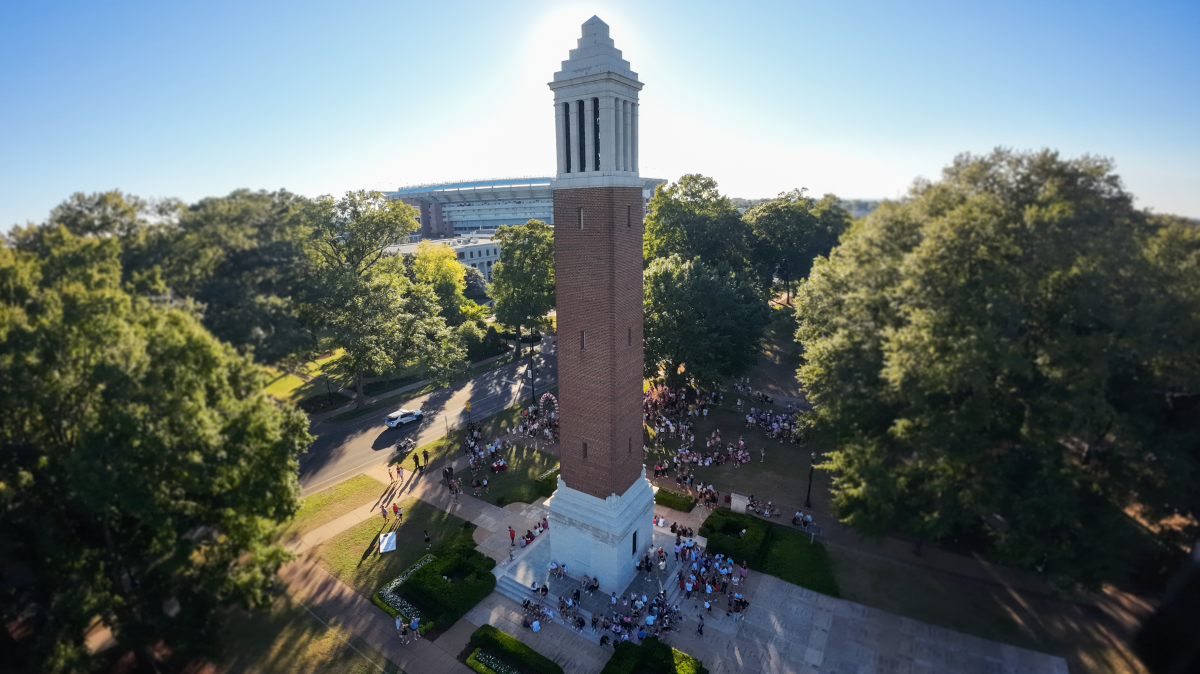By Hailey Grace Allen
The Homegrown Alabama Farmers Market kicked off its season this year on May 6. Homegrown Alabama is now open every Thursday from 3-6 p.m. on the lawn of Canterbury Episcopal Chapel, according to a UA news release.
Homegrown Alabama provides fresh and local vegetables, fruit, honey, baked goods and coffee to the community.
2010 marks the third year that Homegrown Alabama has been a weekly market. The 2010 market season continues through October 28.
Erica Smith, a junior in New College, is the president of Homegrown Alabama and the market manager.
“There is a lack of accessibility to locally grown produce,” Smith said. We feel that it is important to present the community with the choice to buy locally.”
This year, Homegrown Alabama established a voucher program with Canterbury Episcopal Church that allows food banks to provide food stamps for the market.
“We are trying to become more integrated in the community,” Smith said. “The goal of Homegrown Alabama is to educate the community about the value of local produce and to encourage relationships between producers and consumers.”
Some vendors at Homegrown Alabama depend on revenue from the market as a primary source of income.
Neil Montgomery, of Rolling Thunder Farms in Briarfield, Ala., travels to six markets every month selling his organic produce.
“Today is my first day to participate in Homegrown Alabama. The location is great and the fact that the people here appreciate organic produce makes it even better,” Montgomery said.
Montgomery is attempting to make the transition to all organic produce, he said.
“I’ll be here all year!” Montgomery said, “Until they run me off.”
Adam Rivers, a sophomore majoring in environmental science, said he appreciates Montgomery’s efforts.
“It’s nice to support local, organically grown food,” Rivers said. “The fact that I’m able to have a conversation with the person that grows my food means a lot to me.”
Rivers also considers the impact that buying locally has on the environment.
“Purchasing locally grown food reduces the use of fuel that would be used to transport food elsewhere. It may be a small step, but it’s key to reducing our impact on the environment,” Rivers said.
Tillman Allen, a sophomore majoring in civil engineering expressed similar feelings.
“I like that I am able to help local farmers function outside of major corporations. I think it is important to give farmers the option to keep their food local,” Allen said. “It’s nice to be able to buy food in a nice environment and a friendly atmosphere.”
For students interested in getting involved in Homegrown Alabama, Smith said, “We always have a table at Get on Board Day, but we try to keep an open policy.”
During the school year, members of Homegrown Alabama meet every other Wednesday, and the group offers a number of ways to gain volunteer credit, Smith said.
For more information on Homegrown Alabama visit their website at homegrownalabama.org or e-mail the organization at [email protected]








